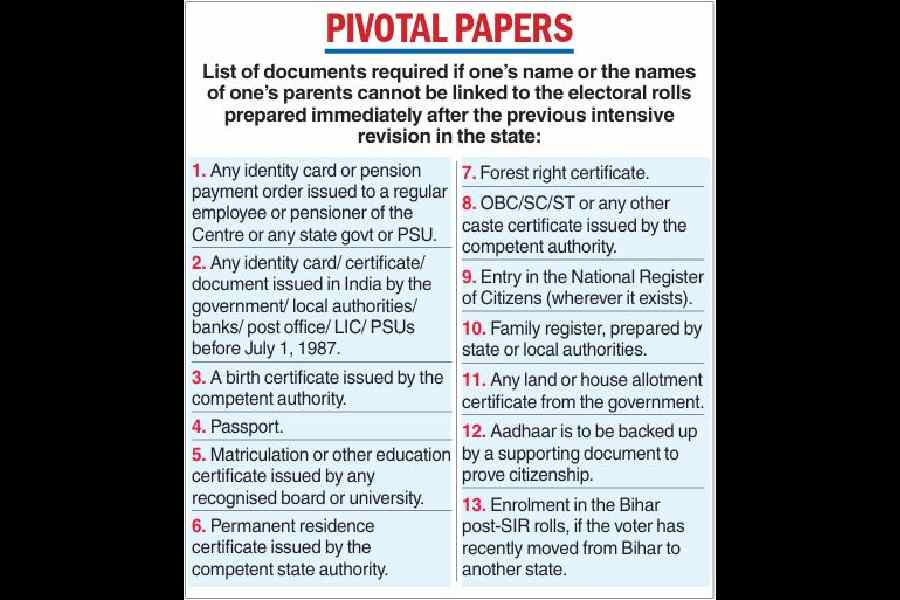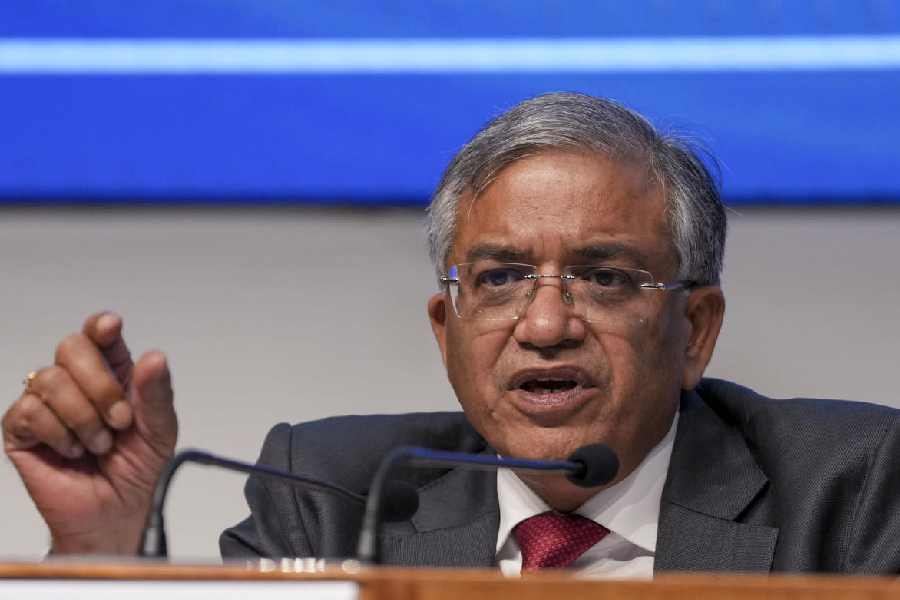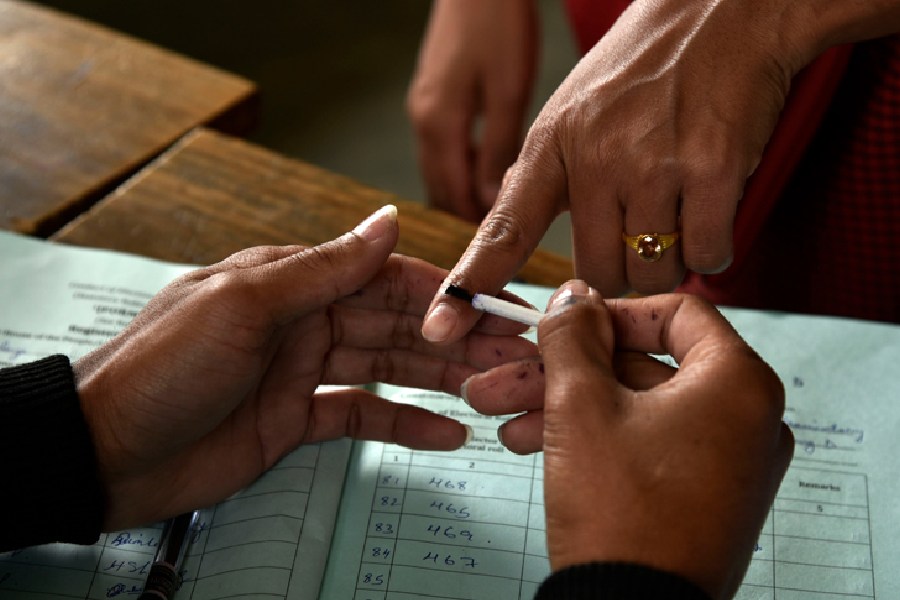The Election Commission of India on Monday announced a special intensive revision of the electoral rolls in nine states and three Union Territories. These include Bengal, Tamil Nadu, Kerala and Puducherry, where elections are due next year, but not similarly poll-bound Assam.
Unlike the recently concluded SIR in Bihar, all the voters will have to provide details of themselves and any one parent from the electoral rolls published after the previous intensive revision in their state, around two decades ago. (In Bengal, the previous SIR was conducted in 2002.)
“When the booth-level officers (BLOs) start distributing the forms to the existing electors, they (the voters) will then try to link the name on the enumeration form to see if their name was on the (previous post-SIR) list,” chief election commissioner Gyanesh Kumar said.
“If it was, they will not have to provide any other documents. Similarly, if their name was not there but their father’s or mother’s name was, they will also not have to provide any other documents.”
Voters can fill in the form online and link it to the previous SIR electoral rolls on voters.eci.gov.in. These rolls date back to between 2002 and 2006 across India. The 12 SIR-bound states and Union Territories include the Andaman and Nicobar Islands, Chhattisgarh, Goa, Gujarat, Lakshadweep, Madhya Pradesh, Rajasthan and Uttar Pradesh.
No documents will be collected during the enumeration phase.
“For those voters whose matching or linking is not possible, where were they in 2003? Were their parents or anyone else not there in 2003?” Kumar said.
“Even if such people have submitted their enumeration forms, the ERO (electoral registration officer) and AERO (assistant ERO) will issue a notice, and after issuing the notice, they will decide their (the voters’) eligibility to be included or excluded based on the indicative documents.”
These documents are the same as those sought in Bihar, plus the Bihar post-SIR rolls — for those who may have moved out of Bihar after the SIR.
A voter needs to furnish any one of these 12 documents. One of these is a (relevant) extract from the National Register of Citizens, which does not exist anywhere except Assam.
Aadhaar has additionally been allowed, but requires a supporting document to prove citizenship.
Kumar said: “The pre-enumeration phase, which will start tonight at 12am (midnight), involves computer matching and linking with the previous SIR through ECI Net (software)…. Manual matching and linking have largely been completed by the booth-level officers in these states.”
The reason for this universal linking of all voters to the previous intensively revised rolls, he said, is: “Sometimes, if a person who is not a citizen of our country has obtained some documents after arriving here....
“In the enumeration phase, we will match where you or your ancestors were in 2002 to 2004. If it matches, then the matter ends there. Those whose details do not match will be issued a notice, and after the notice is issued, they will have to show those documents and also state where they were in, (say), 2003.”

The commission is yet to reveal how many such foreigners were discovered on Bihar’s rolls. Previous intensive revisions — eight since Independence — did not impose a document-based citizenship check on all voters.
An Election Commission source claimed that around 40 per cent of voters on the electoral rolls of these 12 states and Union Territories had already been linked to the previous SIR rolls. Their details will appear on the pre-filled enumeration forms they receive.
While several states and Union Territories that are not headed for polls next year, too, will undergo this round of the SIR, many others have been excluded for various reasons.
For example, the highly urbanised Union Territories of Delhi and Chandigarh have not been included because matching names with the previous SIR rolls has proved relatively difficult in urban areas, the poll panel source said.
The Himalayan states have been left out of this winter round because of cold temperatures and snowfall.
As with the Bihar SIR order, the poll panel has maintained its ambiguity on the possible fate of voters such as orphans and estranged children whose parental details are unknown or unavailable.
Questioned by The Telegraph, Kumar replied: “As far as those children whose parents are not there are concerned, those children will certainly have these indicative documents.
“So, there will be indicative documents, and secondly, for children whose parents are not present, their parents will be somewhere, and where their parents are, the matching and linking will be done with them. The matching and linking with the voter list will also be done by the BLO, and a lot of work has already been done in this regard.”
Kerala conundrum
Local body polls are due in Kerala by the end of the year. The poll panel has, however, included the state in this phase of the SIR.
Asked by this newspaper about the staffing problems this can create, Kumar replied: “Because the local body elections have not yet been notified there, and that is why the SIR has been announced there.”
He added: “And as far as the staff is concerned, it should be clear that the EC requires all the staff needed for the electoral roll or conducting the elections, and the state governments are obligated to provide them under Article 326, Sub-clause 6, of the Constitution, and all constitutional institutions respect the Constitution.”
The Kerala Assembly had passed a unanimous resolution against the SIR. Kumar is a former Kerala-cadre IAS officer.
A commission official told this newspaper that the annual special summary revision will not be done this year, with the SIR conducted in the rest of India in due course.












